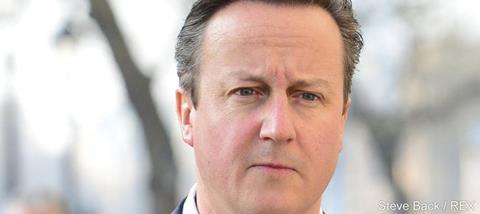
He spoke of his own Christian faith in highly personal terms, rare for a modern prime minister, in a Church Times article. In what may have been a reference to the death of his son Ivan at the age of six in 2009, he said that he had felt ‘at first hand’ the ‘healing power of the Church’s pastoral care’.
He added: ‘I believe we should be more confident about our status as a Christian country, more ambitious about expanding the role of faith-based organisations, and, frankly, more evangelical about a faith that compels us to get out there and make a difference to people’s lives.’
He stressed that ‘being more confident about our status as a Christian country does not somehow involve doing down other faiths or passing judgment on those with no faith at all’.
At an Easter reception for Church leaders, Cameron said: ‘I am proud of the fact that we are a Christian country and we shouldn’t be ashamed to say so.’ He said that he wanted to ‘expand the role of faith and faith organisations’ in the country, adding: ‘Jesus invented the Big Society 2,000 years ago. I just want to see more of it and encourage as much of it as possible.’
His comments drew fire from secularists, with a letter to The Daily Telegraph signed by 50 public figures headed by the president of the British Humanist Association, Professor Jim Al-Khalili saying: ‘We object to his characterisation of Britain as a “Christian country” and the negative consequences for politics and society that this engenders.’
It continued: ‘Apart from in the narrow constitutional sense that we continue to have an established Church, Britain is not a “Christian country”. Constantly to claim otherwise fosters alienation and division in our society.’
However, Conservative Christian Fellowship director Colin Bloom told Premier Christianity: ‘Nearly all of our country’s heritage is based on its Christian DNA. You can’t change history or revise what has happened.’
The secularist agenda aimed at ‘ending religious privilege’, would, he said, in practice mean no faith schools, publicly funded chaplains in hospitals or the military and no Good Friday marches of witness. ‘It would mean unpicking the whole fabric of British life.’
He added that Cameron’s public avowal of faith as prime minister was ‘not that exceptional’ in historical terms and was consistent with his previous record. ‘This was not a political move. I dismiss the view that it was to curry favour or win back votes.’
Christians on the Left said that the notion of a ‘Christian country’ was difficult, and was ‘too vague a notion which allows one to hide away from having your policies measured against Christian values’.
Director Andy Flannagan said: ‘We should start by welcoming comments about faith and taking them at face value, whether from David Cameron or from politicians in any party.’
However, he added: ‘We need to ask ourselves if Christian values, such as equality, fairness, and a concern for the poor, are being lived out as they should in our national life. With many people stuck in debt, relying on payday lending and, increasingly, on foodbanks, that is a difficult question for this government to answer.’




























